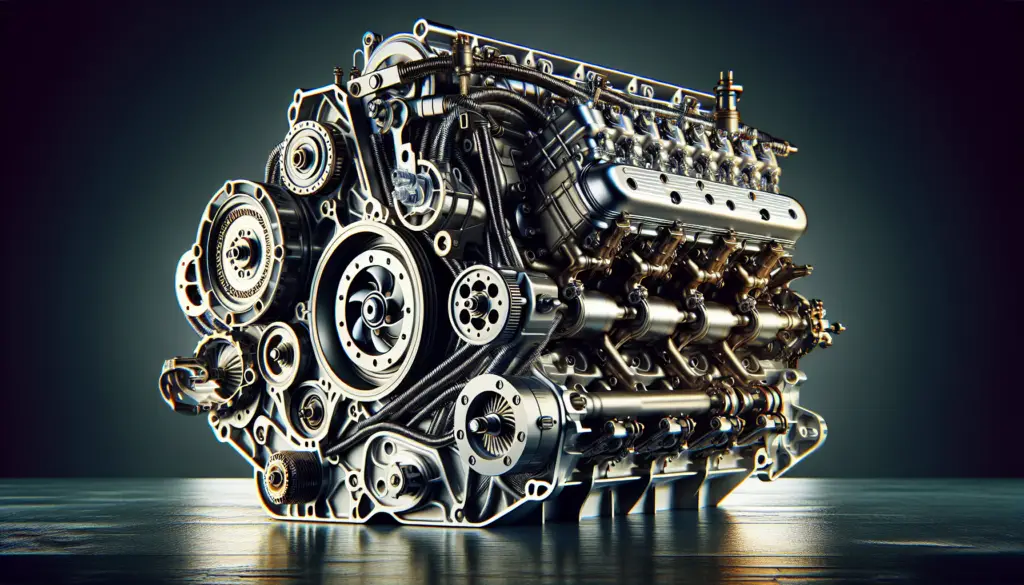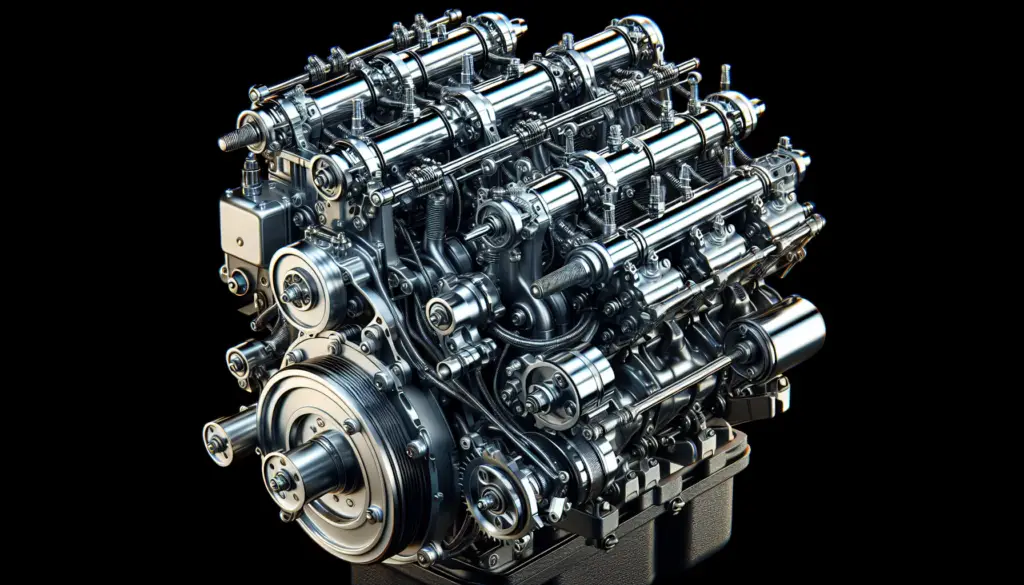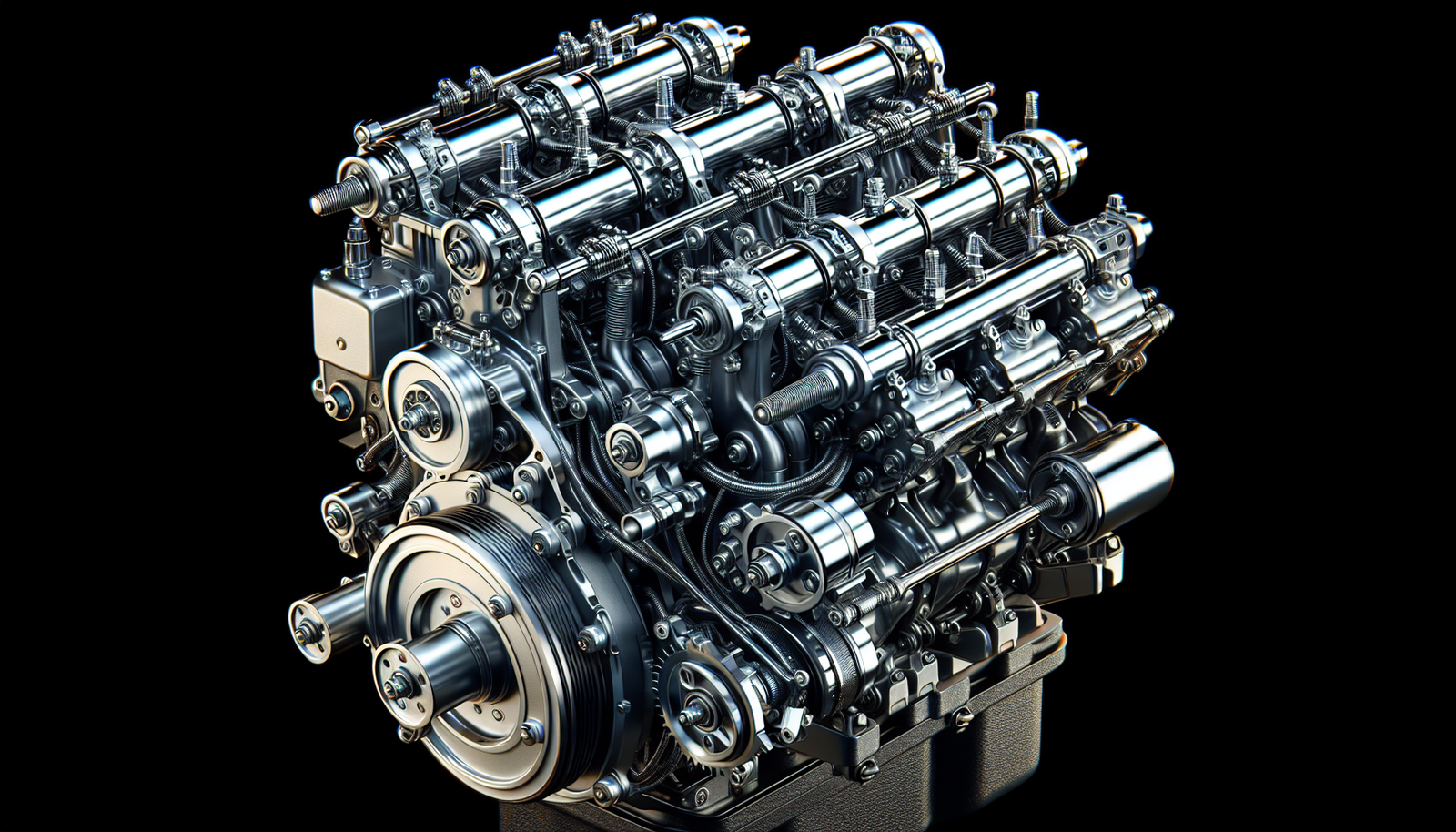Imagine you’re surrounded by the open sea, the sun gleaming off the water and your boat cruising smoothly along. But there’s a catch, your nautical joyride doesn’t perform as efficiently as it could, and the engine is, quite frankly, lackluster. Your boat’s potential goes untapped because its engine hasn’t had the fine-tuning it deserves which is exactly where ‘Best Practices For Boat Engine Tuning And Performance Upgrades‘ sweeps in to help! This article is a toolkit, full of expert knowledge to navigate you through the tricky sea of boat engine upgrades, tuning, and performance enhancements, ensuring that your next sea-bound adventure is as smooth sailing as it can be.

Understanding the Importance of Boat Engine Tuning
Let’s talk boat engine tuning. It’s the hidden gem that takes your good ole boat ride and propels it into an unforgettable, performance-packed experience. But, before we dive in, let’s get a grip on what engine tuning is all about.
Basics of engine tuning
Essentially, engine tuning is about adjusting or modifying your boat’s engine to amplify its performance. This process often involves enhancing the engine’s power output, speed, and fuel efficiency. It’s like giving your boat a new lease of life, with increased vigor and vitality.
Benefits of engine tuning for boat performance
Engine tuning spells numerous benefits for your boat’s performance. It boost’s your boat’s speed, power, and fuel efficiency. But that’s not all. A well-tuned engine also has improved throttle response, smoother riding experience, and better overall handling.
Myths and misconceptions about engine tuning
Now, let’s bust some myths. No, tuning isn’t all about speed. Yes, it can enhance your speed, but the primary purpose here is optimizing performance, which includes several aspects like torque, power, handling, and durability. Likewise, another misconception is that tuning always involves major changes to the engine. In reality, tuning can simply be about tweaking certain settings to unlock better performance.
Factors to Consider before Tuning Boat’s Engine
You’ve decided to give engine tuning a shot. Great decision! But before you dive in, there are a few factors worth considering.
Understanding your boat’s current performance
Firstly, you need to understand your boat’s current performance. Be attentive. Is there any unusual noise or vibrations? Are there any engine issues? Remember, tuning is as much about identifying and resolving these issues as enhancing performance.
Identifying the needs of your boat’s engine
Next comes identifying what your boat’s engine really needs. Is it more speed, more power, better fuel efficiency? Or perhaps all of them? The key here is balancing these needs, because focusing on any single aspect can often have repercussions on others.
Possible implications on boat’s longevity
Tuning can offer massive performance gains, no doubt. But it’s also important to understand that excessive tuning can potentially put strain on your boat’s engine, compromising its durability. So, keep the tuning within reasonable limits.
Tuning the Engine for Improved Boat Speed
Cranking up the speed of your watercraft sounds exciting, right? But how does one go about that? Let’s unravel the basics.
How tuning influences maximum speed
When you tinker with your boat’s engine through tuning, you essentially optimize the engine’s power output and combustion. This results in better torque delivery and higher RPMs, and voila—increased speed!
Techniques for enhancing boat’s speed
There are several ways to enhance boat speed, from simple tweaking of your carburetor or ECU (Engine Control Unit), upgrading the propeller, to more substantial modifications like installing a turbocharger or supercharger.
Risks involved with tuning for speed
Before we dive full throttle into tuning for speed, it’s vital to understand the risks. Indeed, enhancing speed through tuning can place more stress on the boat’s engine, potentially leading to overheating and even engine damage. Regular maintenance and monitoring are crucial to avoiding these downsides.

Tuning for Enhanced Fuel Efficiency
No one likes to burn more fuel than necessary, right? Let’s see how tuning helps.
Understanding the fuel economy of boat engines
First things first: no two boat engines are alike when it comes to fuel economy. Factors like engine type, size, and load have a definite bearing on fuel consumption. But irrespective of these variables, a well-tuned engine invariably proves to be more fuel-efficient.
Effective methods for boosting fuel efficiency
When we talk about tuning for fuel efficiency, it mostly involves optimizing the air-fuel mixture of the engine. Regular servicing, using quality fuel, and keeping the engine clean can also work wonders for your boat’s fuel economy.
Impact of tuning on long-term fuel costs
Although tuning may involve some upfront costs, the long-term benefits, especially fuel savings, can more than offset these expenses. A tuned engine consumes less fuel, which in turn contributes to lower running costs.
Best Practices for Engine Maintenance Post-Tuning
So, you’ve tuned your boat’s engine and it’s now firing on all cylinders. But, don’t forget, the job isn’t over yet. Maintaining the engine post-tuning is crucial.
Maintaining tuning enhancements
Maintenance needs differ post-tuning, especially if you’ve made substantial modifications. Regular check-ups, timely servicing, and running the engine within safe operational parameters are key to preserving these enhancements.
Routine checks for tuned engines
Even a basic visual and listening check can help identify potential issues early on. Likewise, regular oil changes, spark plug replacements, and air filter checks are routine maintenance practices for tuned engines.
Preventing common issues for high-performance engines
With greater performance comes greater responsibility. Performance engines are more prone to overheating, excessive wear and tear, and other potential issues. Avoiding these concerns necessitates timing maintenance schedules and using trusted parts and lubricants.
Performance Upgrades for Boat Engines
Sometimes, engine tuning isn’t enough and you may need performance upgrades. Let’s delve into some popular ones.
Analyzing the need for performance upgrades
Ask yourself: What am I looking to achieve? Is my current setup limiting me? Perhaps you want to participate in boat racing or your engine feels sluggish despite tuning. That’s when performance upgrades come into the picture.
Popular performance upgrades for boat engines
Common performance upgrades include installing high-performance air filters, ECU upgrades, turbochargers, exhaust system upgrades, and propeller upgrades, all engineered to give you that performance edge.
Balancing costs and benefits of performance upgrades
While these upgrades can amp up performance, they also call for a larger investment. Not just the initial costs, but also subsequent maintenance and potentially lower longevity. Therefore, it’s crucial to weigh the costs against the benefits.
The role of Professional Mechanic in Engine Tuning and Upgrades
It’s always wise to call in the pros when in doubt. Let’s discuss why.
When to consider professional help
DIY can be fun and cost-effective, but when it comes to complex modifications, or if you’re unsure about the process, it’s safer to hire a pro.
Finding a trustworthy marine mechanic
Look out for mechanics who specialize in boat engines. Check their credentials, ask other boaters, read reviews. The key lies in finding a trustworthy, competent professional.
Cost implications of hiring a professional
While hiring a professional mechanic may cost more upfront, it can save you a lot of grief in the long run. Not to mention, the peace of mind knowing your boat is in good hands.
DIY Tuning and Performance Upgrades
If you’re a person who likes to get hands-on, tuning and upgrading your boat’s engine can be an exciting DIY project.
Safety considerations for DIY tuning
Safety should never be compromised. Always wear protective equipment, and never attempt to service or tune your engine while it is running or hot.
Recommended tools for boat engine tuning
Having the right tools is essential. These include an engine tuner, screwdrivers, wrenches, and a multimeter, among others.
Online resources and guides for DIY enthusiasts
There’s a treasure trove of knowledge available online, from boat forums to YouTube tutorials. Do your research, learn from others’ experiences, take your time and remember, it’s okay to ask for help.
Troubleshooting Common Issues Post-Tuning
Tuning does have its challenges, and post-tuning issues can arise. Let’s lay out a roadmap for troubleshooting.
Detecting potential issues post-tuning
It’s important to stay alert. Unusual noise, smoke, decreased performance, erratic engine behavior—these could all signal an issue.
Resolving typical tuning related problems
Often, resolving these problems can be as simple as readjusting the settings or carrying out thorough maintenance.
Seeking professional help for complex issues
If a problem feels beyond your scope, that’s okay. Take your boat to a professional. Better safe than sorry!
Continued Monitoring of the Boat’s Performance Post-Tuning
Congratulations: your boat is tuned, upgraded, and powering through waters like never before. But the journey doesn’t end here.
Importance of regular performance monitoring
Regular monitoring ensures your boat continues to run optimally and helps you to identify potential issues before they escalate.
Tools for tracking boat’s efficiency
Tools like engine monitors, fuel flow meters, and RPM gauges can help track your boat’s performance.
Adjusting tuning settings for optimal performance
Monitoring can help identify if any particular setting isn’t working for you. Don’t hesitate to make adjustments. Remember, tuning is about finding the sweet spot between performance and longevity. Happy sailing!

